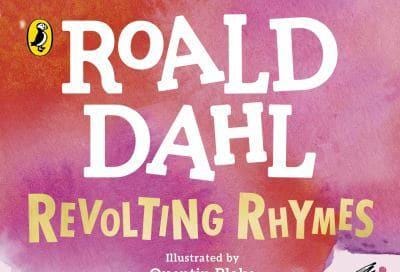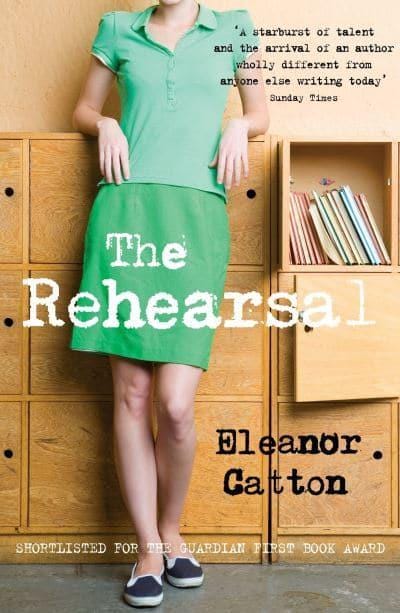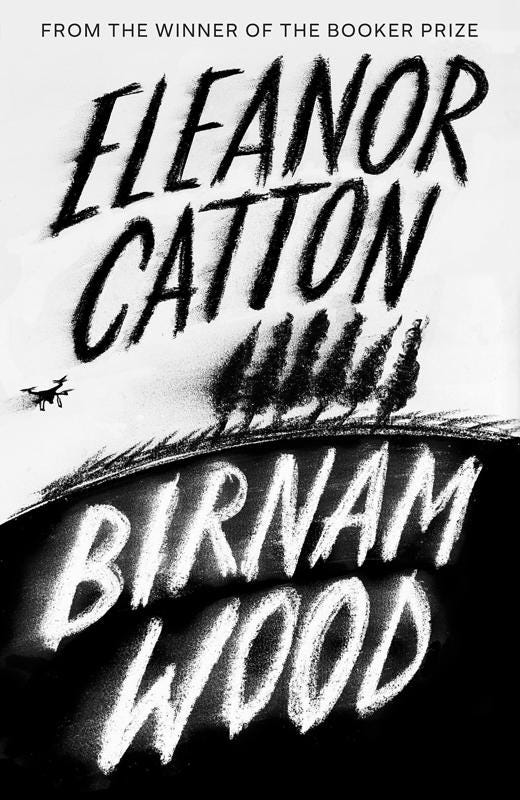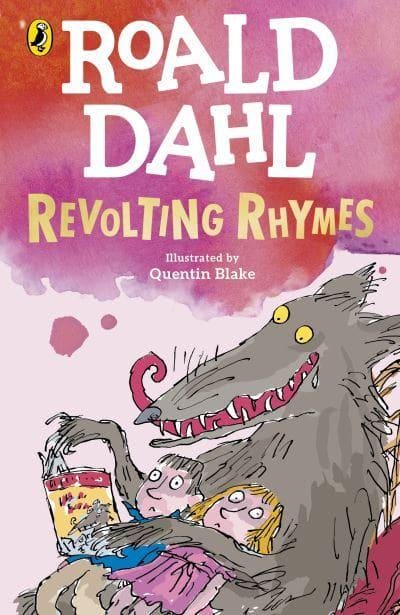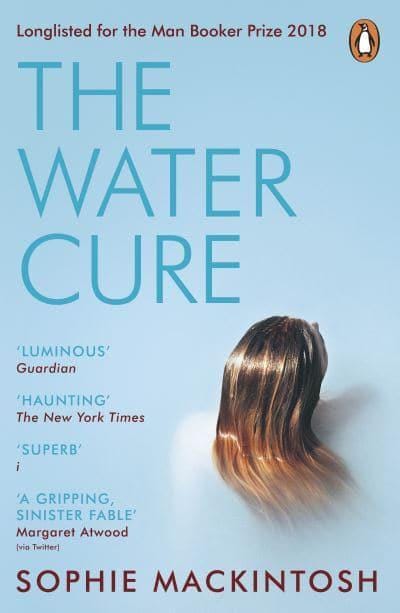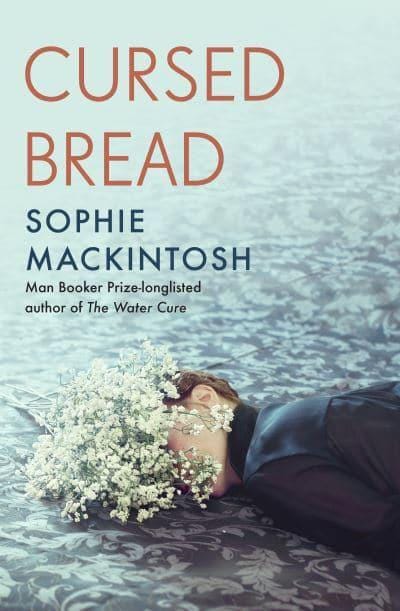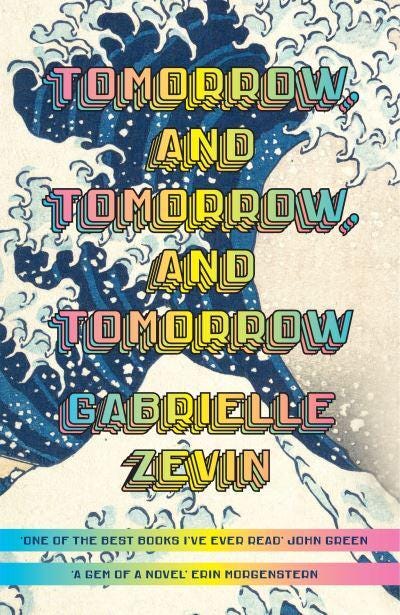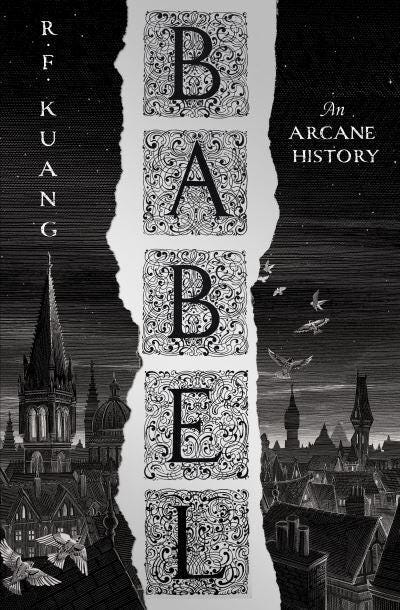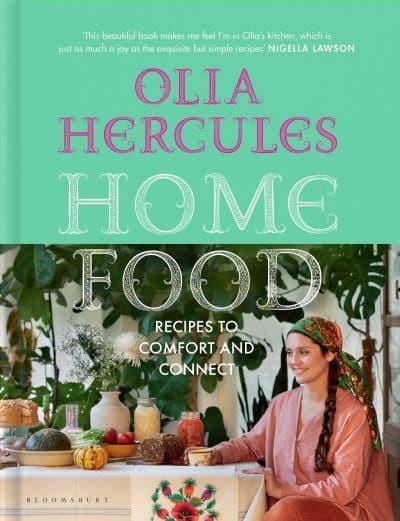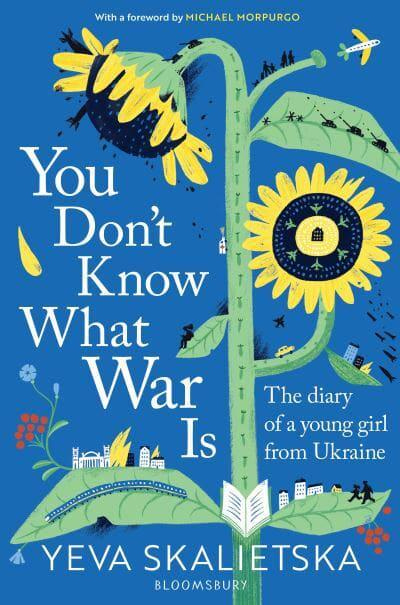Which Books Should You Be Buying This Week?
Your round-up of the newspapers' book reviews February 18/19
I don’t know if you’ve noticed but I’ve been trying to include a few more paperbacks in my weekly round-ups recently because I know that, for some, money is tight, and so pushing the boat out and investing in a hardback, might not be for everyone right now.
So that’s where we’ll start this week. THE LUMINARIES was the second novel by Eleanor Catton and put her on the literary landmark for two reasons: first, it was the longest book to win the prestigious Booker Prize; second, that win made her the youngest ever winner at just 28.
This week Catton is filling newspaper column inches because her third novel BIRNAM WOOD is out on March 2, and it is already being lauded by critics.
In an interview with the author in The Guardian’s Saturday supplement, this is how it was described: “The novel revolves around the New Zealand national obsession: property. The young anti-establishment members of the Birnam Wood collective want to use Thorndike Farm to grow produce, and American billionaire Robert Lemoine wants to buy it, posing as a survivalist who plans to build a refuge there as a cover for an illegal rare-earth mining operation. Characters are broadly divided along generational lines – idealistic twentysomethings Mira and Shelley, gen X baddie Lemoine and benign but smug baby boomers Lord and Lady Darvish, who actually own the land. Birnam Wood addresses many of today’s hottest issues: the moral depredations of late capitalism, the dangers of rampant technology, surveillance, social media and environmental collapse, and the question of who is to blame for it all. While Catton shares her generation’s anger at the boomers – for presiding over a period that has seen the introduction of university tuition fees, the financial crisis and an acceleration of the climate crisis for starters – the novel’s sharpest satire is directed at her own tribe: well-meaning, left-leaning millennials.”
Catton is a New Zealander, and this novel was apparently borne out of a comment the former NZ PM levelled at her when she criticised the country’s politicians as “neoliberal, profit-obsessed, very shallow, very money-hungry.”
Key suggested she should keep out of things she did not understand, and so Catton set out to understand fully the history of politics in her country et voila, her new novel was born. Thank you very much, Mr PM!
It does sound an intriguing piece of work – the novel, not the former PM.
THE LUMINARIES very much looked to the skies for inspiration, each chapter: “…it was written according to a complex astrological schema, where each character corresponded to a zodiac sign, created with the help of a website that tracked the planetary movements over 19th-century New Zealand.” Whereas Catton took inspiration from classical texts for this new tale, Macbeth in particular: “From Macbeth she took not only the title (a wood of the same name plays a pivotal role in the Scottish king’s downfall),” writes Lisa Allardice, “but drew up another intricate masterplan in which each of the main characters could be seen as Macbeth, with a corresponding Lady Macbeth, witches and so on. It sounds tricksier than it is: as the narrative perspective shifts, everybody could be the villain. She wanted to stop readers playing “the polarised blame game we are all used to in contemporary politics,” she explains. “You wouldn’t be able to say: ‘These are my people so they are obviously the good guys. These are the people that I despise so they are obviously the bad guys.’”
It is this layering of narrative that made THE LUMINARIES a Booker Prize winner, and of course a BBC TV series – the screenplay was also written by the author. But it also might be worth checking out Catton’s debut novel, if you haven’t already. THE REHEARSAL which was published when she was just 22. It was Shortlisted for The Guardian First Book Award and Allardice describes it as “an ingeniously crafted story about teenage girls and a sex scandal in a New Zealand high school.”
Going by early reviews, BIRNAM WOOD will end up on many a prize-winning shortlist, and if you want to get ahead of the crowd, pre-order it here.
From new(ish) talent, to an old favourite now, and though this has not appeared in reviews this weekend, it has filled column inches in almost all newspapers. Opinion of Roald Dahl fans will probably be divided at the news that his books have been given an edit for the modern age, with “language related to weight, mental health, violence, gender and race …cut and rewritten,” according to The Telegraph. “Remember the Cloud-Men in James and the Giant Peach? They are now the Cloud-People. The Small Foxes in Fantastic Mr Fox are now female. In Matilda, a mention of Rudyard Kipling has been cut and Jane Austen added. It’s Roald Dahl, but different…other alterations are about weight. “Fat little brown mouse” becomes “little brown mouse”. “‘Here’s your little boy,’ she said. ‘He needs to go on a diet’”, becomes “Here’s your little boy.””
I’m not sure how I feel about this as a writer, particularly as Puffin, the publishers, continue to profit from the author though, of course, all these edits have been made without his consent. Or perhaps, I’m sure the publisher believes, they preserve Dahl for yet another generation, meaning that he will still play just as an important part in many childhoods to come as he did in our own.
In publishing we already have sensitivity readers for new books coming out, and although the ink may be decades old on the presses, it clearly doesn’t stop a new editor taking a red pen to the greats. One has to ask, where might this be heading in the future?
I treasured my copy of REVOLTING RHYMES as a kid, you can order the new sanitised version for your child (or yourself) here, or if you prefer a 2016 copy passed over our virtual counter in a brown paper bag, drop me a custom order here. (Or indeed drop me a custom order for any of Roald Dahl’s books anytime).
Back to reviews now, I loved Sophie Macintosh’s debut novel, THE WATER CURE when it was published in 2018. It was longlisted for The Booker Prize, which really is incredible for a debut if you think about it. THE WATER CURE told the curious tale of three sisters living in an abandoned hotel on an island surrounded by a poisonous sea. The world outside of their island is contaminated, by men, their parents tell them, but what happens when men wash up on their shores?
CURSED BREAD is Mackintosh’s third novel and sounds equally as intriguing. It is actually based on a real-life event (“so odd it feels scarely believable” says Claire Allfree reviewing in The Sunday Telegraph) in 1951 of a mass poisoning in a French commune which left seven people dead and 50 in asylums and was believed to have been caused by a rogue bacteria from a local bakery. This event actually occurs at the end of the novel, and the story itself is the foreshadowing of it. Elodie is the narrator of the tale who develops a ‘voyeuristic obsession’ with Violet, a woman who recently arrived in the town with her husband, known as ‘the ambassador’.
“Women at the laundry titter at Violet’s fine clothes'; the grocer’s wife marvels at her taste for expensive truffles; sexually febrile Elodie, ignored by her husband, imagines the couple behind locked doors and soon catches the ambassador’s attention herself.”
From the review it sounds like a brilliant claustrophobic little novel, and Allfree praises Mackintosh for bringing it in under 200 pages insisting it ‘contains more riches than many a novel twice its length’. She describes it as a ‘shimmering fever-dream of a novel, teasing the reader with the fine lines between delusion, fantasy and boredom.’
It sounds perfect to me. Will it be another Booker contender for Mackintosh? Buy CURSED BREAD here and decide for yourself.
A recommendation from an author now that I spotted in the On My Radar section of The Observer Magazine. Gabrielle Zevin’s TOMORROW AND TOMORROW, AND TOMORROW was the breakout novel of 2022 and has appeared on most of the books of the year lists, and you can buy it here.
Zevin recommended the novel BABEL by RF Kuang in her round up of all things culture, and this is what she had to say about it: “I don’t read a ton of fantasy, but I like this book because it’s really about language and the power that exists in the distance between a word and its translation. The world-building is really interesting as well. It’s about a boy in China in the 1830s whose mother dies and he’s swept away to England, where he’s trained to be a translator. I like that the book is angry and indignant. Kuang is 26 and I just have a sense that it’s the beginning of a fantastic career.”
You read it here first, or maybe in The Observer Magazine. Anyway, you can buy BABEL here.
Finally, it is a year since Russia invaded Ukraine and I read a brilliant interview in The Observer with cookery writer Olia Hercules describing how that year has felt for her family.
Regular readers of this newsletter, or visitors to my pop-up shop, may remember that Debora Robertson picked Ukranian writer Olia Hercules’s HOME FOOD as one of her favourite cookbooks of 2022. You can read Olia’s interview here, and after doing so, you might like to check out her cookery book HOME FOOD which is an explosion of colour and taste not only from Ukraine but inspired from her visits all over the world. You can buy HOME FOOD here.
On the topic of the war in Ukraine, a reminder for young readers (or those buying for them) that you will also find in my online shop YOU DON’T KNOW WHAT WAR IS, a moving and gripping diary of 12-year-old Ukrainian refugee, Yeva Skalietska.
“In You Don’t Know What War Is, Yeva records what is happening hour-by-hour as she seeks safety and travels from Kharkiv to Dublin. Each eye-opening diary entry is supplemented by personal photographs, excerpts of messages between Yeva and her friends and daily headlines from around the world, while three beautifully detailed maps (by Kharkiv-native Olga Shtonda) help the reader track Yeva and her granny’s journey. You Don’t Know What War Is is a powerful insight into what conflict is like through the eyes of a child and an essential read for adults and older children alike,” so says the blurb. It also comes with a foreword by Michael Morpurgo.
You can buy YOU DON’T KNOW WHAT WAR IS here.
So that’s it, you’re up on all the book news. Same time, next week?
• Thank you to all who have been ordering from my online bookshop in the last week. Remember you can still support THE BOOK ROOM while I am waiting to open my physical store again by shopping online, in fact now I would appreciate the support more than ever. I can order ANY BOOK for you and you will receive it within 48 hours. It has never been a more important time to support both writers and independents bookshops, and by buying from me, you are doing both and contributing to a vital ecosystem.

